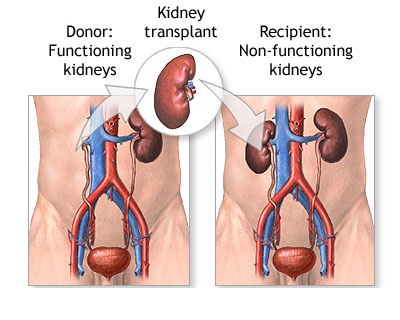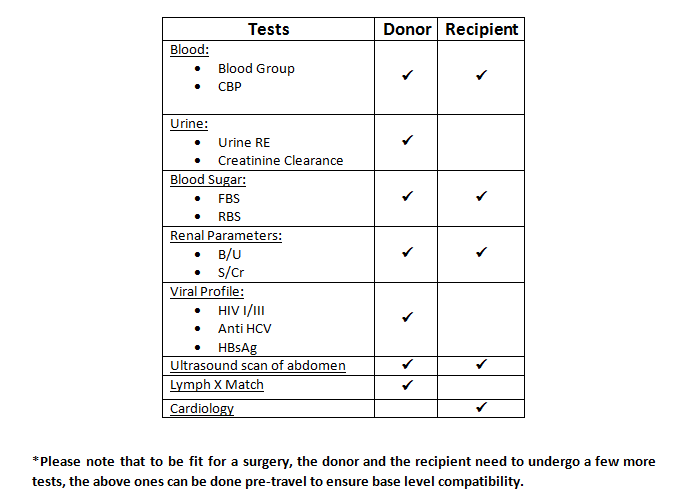There’s good news and there’s bad news. The bad news is that someone you care about has end-stage renal disease and needs a Kidney Transplant. The good news is that something can be done about it and the person with the opportunity could be you.
What is kidney transplant?
Kidney transplantation or renal transplantation involves the organ transplant of a healthy kidney into a patient with end-stage renal disease. The donor is usually a direct blood relation of the recipient – child, parent or sibling.
Kidney failure
The kidneys perform the critical function of purifying the blood in the human body, removing waste from blood and balancing body fluids. When the kidneys fail to do these important functions, waste and excess fluids build up in the body, in turn, causing a build-up in the Creatinine Level; thereby leading to kidney failure.
One of the immediate treatments for kidney failure is dialysis. In dialysis, a machine is connected to the human body, which acts as an external kidney and functions as such, i.e., removes waste from blood and balances fluids in the blood. A patient with a high level of Creatinine must undergo regular dialysis to ensure that optimum Creatinine levels are maintained for normal functioning of the body.
Typically, patients with a failed kidney need to undergo dialysis 2 or 3 times a week. A long-term solution for a failed kidney, though, is a kidney transplant.
Donor for kidney transplant
A donor can be one of the following:
– Family member: where the donation can be done immediately with minimum formality
– Cadaver: In India, a national level registry is maintained and the patient enters his/her details into the list and waits for the next available cadaver to receive the kidney from. Typical wait times could run into a year.
Pre-requisites for transplant
Now that we have understood our options, it’s time for the better news. How can the treatment be validated to our level of satisfaction before undertaking the necessary steps, whether it’s travel or financial planning?
Transplanting a kidney is a major surgery, requiring a battery of tests to be done to ensure compatibility of the new kidney in the recipient. Usually, a hospital that gets a kidney transplant patient would ensure that both patient and donor undergo all necessary tests for compatibility before a surgery.
my-healthconnect, backed by the experience of assisting patients through this process, recommends the following tests to be done before your medical travel to ensure base level compatibility:
Blood Group: Donor’s blood group is important and basic criteria to ensure a successful donation can be done. (An O+ donor can donate to a recipient with any blood group).
Urine: A donor with a high level of Creatinine will not be eligible for donating his/her kidney.
Lymph X Match: HLA typing and Lymphocyte X Matching are done for lymph matching.
Cardiology: Recipient’s ECG, 2D-Echo are done to ensure the recipient is technically fit for a surgery.
Viral Profile: An HIV donor can, at times, donate to a recipient. This arrangement would require additional investigations and treatment steps to ensure the transplant is successful.
The above investigation reports of a prospective kidney transplant patient and donor/recipient can be uploaded on our website and we will share the reports with a doctor, who can advise a provisional diagnosis on the next steps before your medical travel so you can be better informed on what to expect.
As part of my-healthconnect initiatives, we have empanelled Renal Transplant & Urology surgeons. Our initiatives have been helpful in connecting patients in sub-urban India as well as overseas patients to specialists in India for an opinion and, where required, the necessary follow-up treatment.





